Lauren Deakin Davies Interview – The Conqueror
At the age of 23, Lauren Deakin Davies has already made an impressive mark on the music production world. Having helmed over nine albums, received numerous awards for her work and being the youngest-ever full member of the MPG, the future looks bright indeed for the Hetfordshire-based producer… “You’re either good at talking or you’ve […]
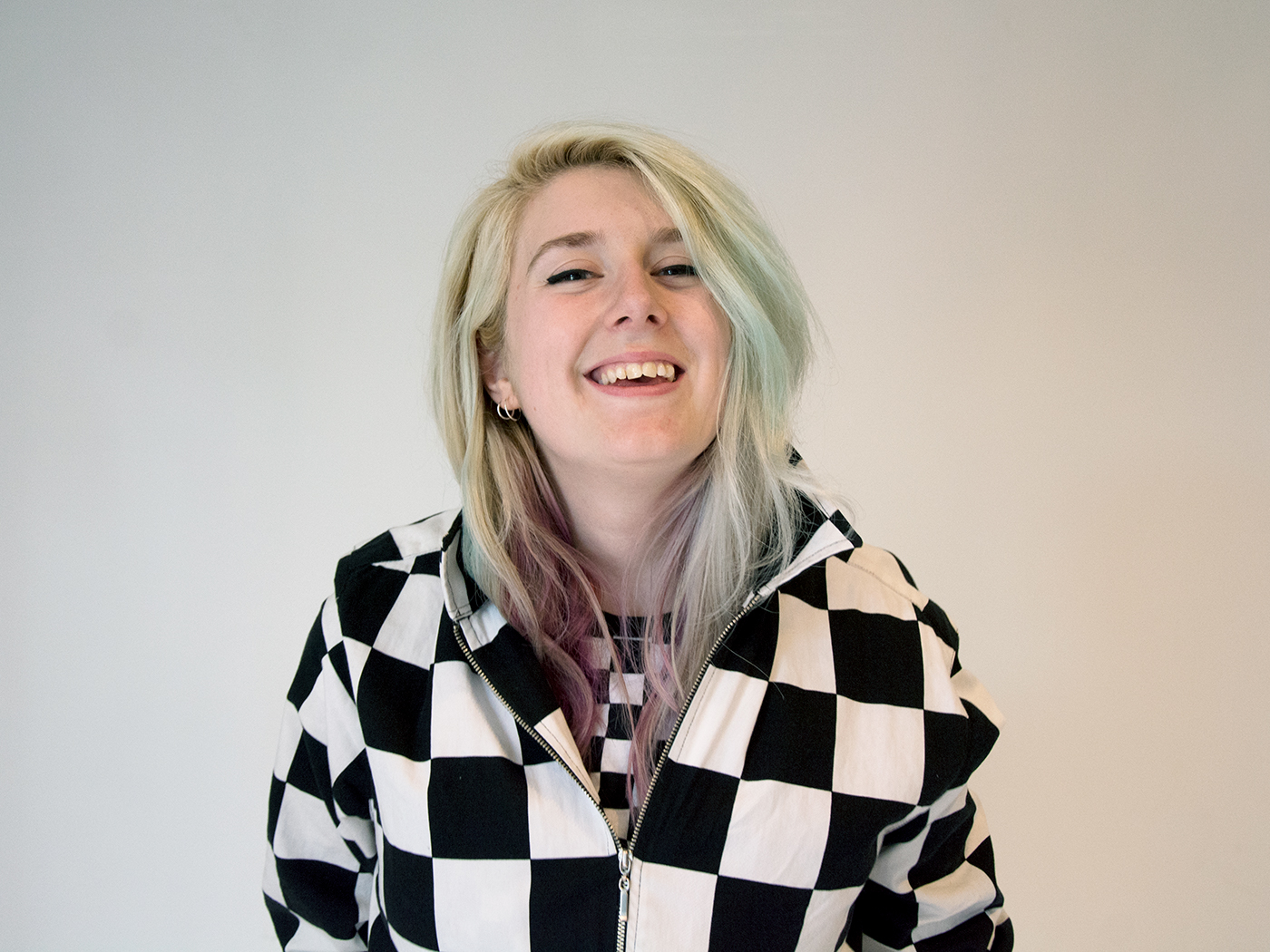
At the age of 23, Lauren Deakin Davies has already made an impressive mark on the music production world. Having helmed over nine albums, received numerous awards for her work and being the youngest-ever full member of the MPG, the future looks bright indeed for the Hetfordshire-based producer…

“You’re either good at talking or you’ve got good management. That’s the strongest reason why you make it. You obviously also need to care a great deal about music production, and you need to want to do it every day, all the time,” so says Lauren Deakin Davies, a woman who, at the age of 23, has amassed a list of astounding achievements in a remarkably short space of time.
Working out of her impressive studio, The Den, Lauren’s productions have garnered interest from a range of high-profile artists, such as Laura Marling, Kate Dimbleby, Peggy Seeger and The Hoosiers. She also became, at the age of just 19, the Music Producer’s Guild’s youngest full member and has won two Producer of the Year accolades at the NMG awards. So how did her interest in music production begin?
“Well, I’ve been doing music since I was 11 years old and I’ve been in bands of varying sizes,” Lauren tells us. “One of the bands I was in when I was 15 started doing alright, and we ended up going to Universal Studios and Metropolis Studios and places like that. I remember walking into a studio and thinking, ’Oh my God, this is the coolest thing in the world!’, so I really got into it then. There was also a local studio called The Cream Room which had a young artist called Alexa Mullins. She wanted me to come into the studio to sort of make sure she was okay and enjoy it. She knew I was embarking on studying music production, so I ended up working at that studio for a while which gave me a lot of grounding.”
Before long, Lauren’s own personal workspace took shape. “I had my own little converted shed at the bottom of the garden (dubbed ’The Den’). It was built by my stepdad originally as a ’party den’ so it had lasers and strobes in it, massive speakers, as well as a bar and a Pac-Man machine! The brilliant thing is he built it to the size of the bottom of the garden, but the bottom of the garden isn’t square, so none of its four walls are parallel.”
Lauren continues to tell us about her formative years: “Anyway, my mum really liked one of the last bands I was in, which was doing quite well. We had a folkier sound which appealed to her sensibilities, so she decided, naturally, that she was going to start up a folk label! She ended up working with quite a lot of local folk artists and we had this system going where, if she found an artist she really liked, she’d send them down to The Den, where I’d track them and then she would record them and put them out.”
So a musically-motivated household then. This small folk-label experience gave Lauren the chance to actively record and produce on a regular basis. “After a while I started doing my own things, and now I alternate between The Den and at Soundlab in Loughton [Essex], which is a really nice studio. Back when The Den was just a rehearsal space we got a massive mirror on the wall, which I was going to take down but I actually like how it sounds. I put wooden floors down, built an elevated area, changed the control desk, got a new desk, put in more insulation, but it’s still got that chilled, living room vibe.”
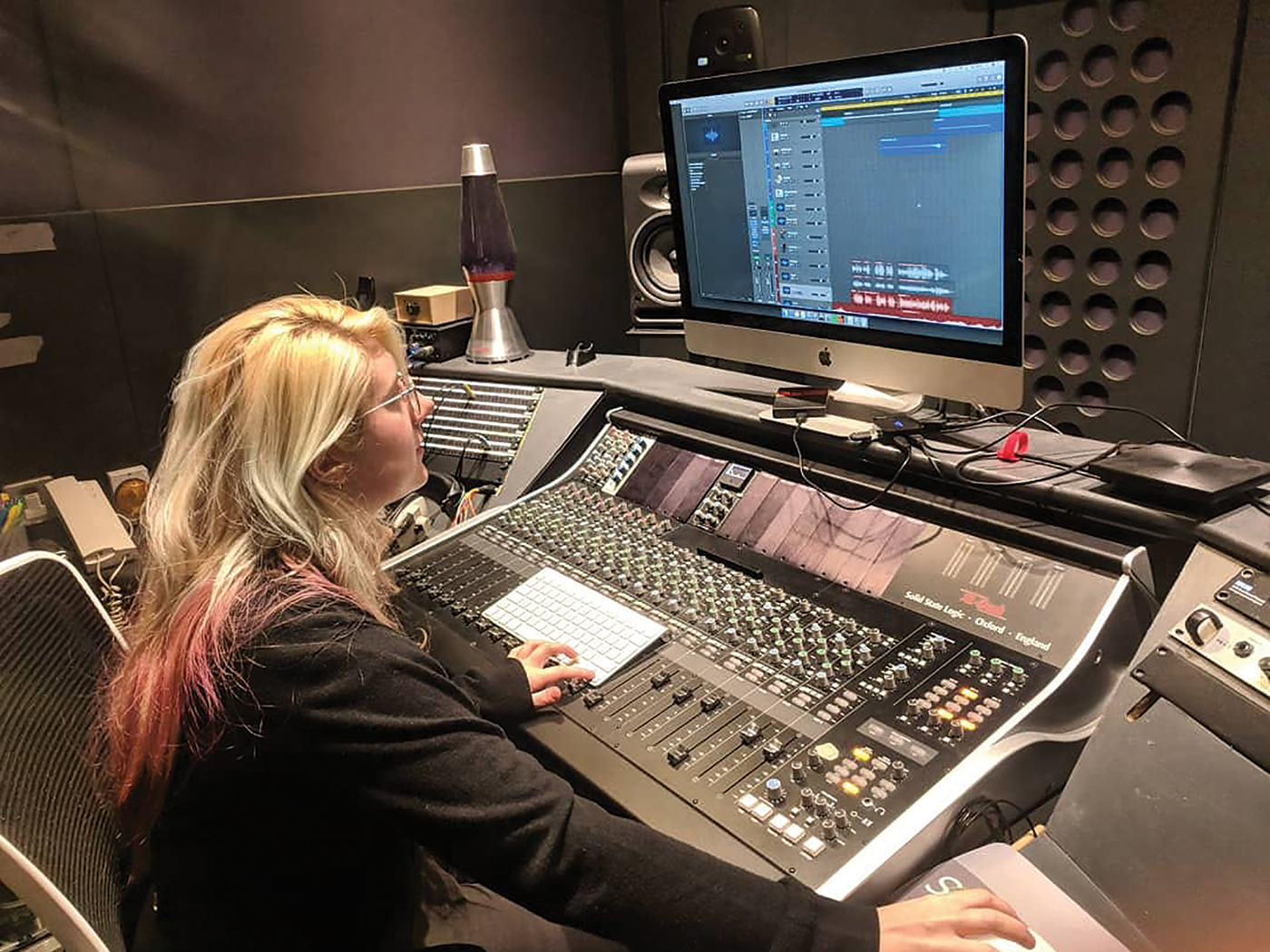
Inside the den
We ask Lauren if she seeks out the artists that she works with, and how the dialogue with artists tends to go. “I usually seek them out myself, but now I’m in a lucky position where a lot of them come to me. Occasionally I will come across someone and think, ’They’re really good and I really want to work with them’, which is a really nice position to be in.
“In terms of speaking to the artist, before the session starts, I’ll get them to send me the track that they want to work on, and then other tracks of theirs – this is assuming that they just want to work on one song to start with. Then I’ll get them to send me three reference songs and explain to me what they’re going for with the song in question.”
Lauren elaborates on this: “I mean they might be a folk artist and give me an artist like Muse as a reference. In discussions it’s made clear that they don’t actually want their song to sound like Muse, they might just want a similar guitar line or tone in a song. I have a crib sheet of things that I go through with them, but when they come into the session I get them to actually explain it again, just to make sure we’re exactly on the right page. I then decide how we’re going to record it, how we’re going to achieve the sound, things like that. That’s how it works.”
Lauren’s professionalism and discipline are immediately apparent and The Den is kitted out with all the tech that she requires to facilitate any creative requirement. “In terms of DAW, I use Logic mainly because I do a lot of songwriting as well, and Logic is really intuitive, quick and user-friendly, though I will use Pro Tools too. I have a Universal Apollo Quad as my primary interface. But I was lucky to get sponsorship from DiGiGrid so I’ve got all of their hardware as well. That’s really nice. I’m still using KRK monitors which I love. I know they’re quite bassy but because I’ve got so used to how they sound in my room I can work well with them. I also mix reference at Soundlab too.” Lauren explains that when it comes to software, “I’ve got a vast amount of Lexicon and Waves plug-ins – I don’t need any more!”
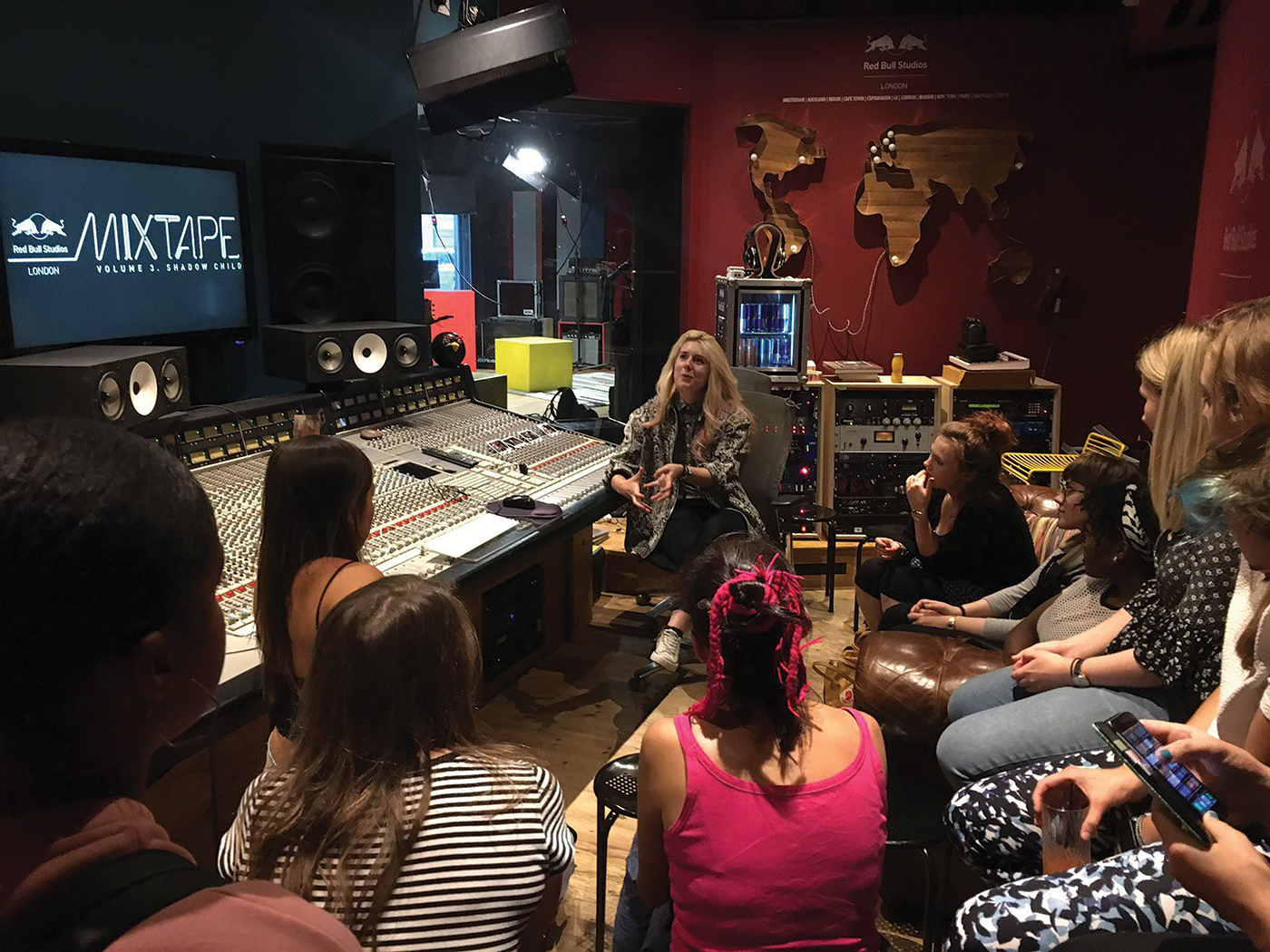
Aside from production, Lauren is a capable musician herself: “I can play electric guitar, acoustic guitar, bass, piano and ukulele. I can basically turn my hand to any stringed instrument you put in front of me, but it depends what quality you want that to be. I have a cello and I have a violin but I don’t know if I can play them well, but I have played them on recordings. I make my own music under the name DIDI (which is a play on my last name), but I only launched that in March of last year. Because I had obviously been in bands and I’d been a touring guitarist, I basically decided to do a solo project that incorporated all I’ve learnt over the last couple of years. It’s kicking off really well!”
It wasn’t long before Lauren’s work started garnering high profile interest, and an invitation to join the Music Producer’s Guild landed on her doorstep, then at the astoundingly young age of 19. We ask Lauren what it’s like being the youngest member of the coveted collective.
“I’m not sure if I am still the youngest member to join, but I definitely was at the time (the youngest member now is still older than me when I originally joined though). My really good friend, who is also the bass player in my band, who is two days older than me, has just joined too. That membership was integral to when I was starting out. When I joined it meant I had a foundation and a base of people who were all willing to help. I ended up working on the Laura Marling project through meeting an acquaintance on the MPG panel. I wouldn’t have got that unless I’d been part of the MPG.”
In an already diverse career, one of Lauren’s most memorable collaborations involved the daughter of a popular broadcaster. “I think working with Kate Dimbleby on her album Songbirds is one of the most influential projects I’ve worked on. Kate is David Dimbleby’s daughter. She’d done a jazz album before, but she wanted to do something completely different, a whole album with no instruments – all just vocals. It was an interesting concept and quite challenging. All of the songs sound different but they’re obviously coherent as an album and it was just so interesting. It was like, ’How can you mix a 30-track vocal thing of random loops?’ There were 50 tracks on some of the songs, so that record was definitely one of the coolest ones, and Kate’s attitude was so positive. There are a few others: I really like the Danielle Lewis stuff that I’ve worked on; Minnie Birch’s albums as well. I’ve done quite a few albums but that’s the one [Kate Dimbleby] that sticks out for me.”
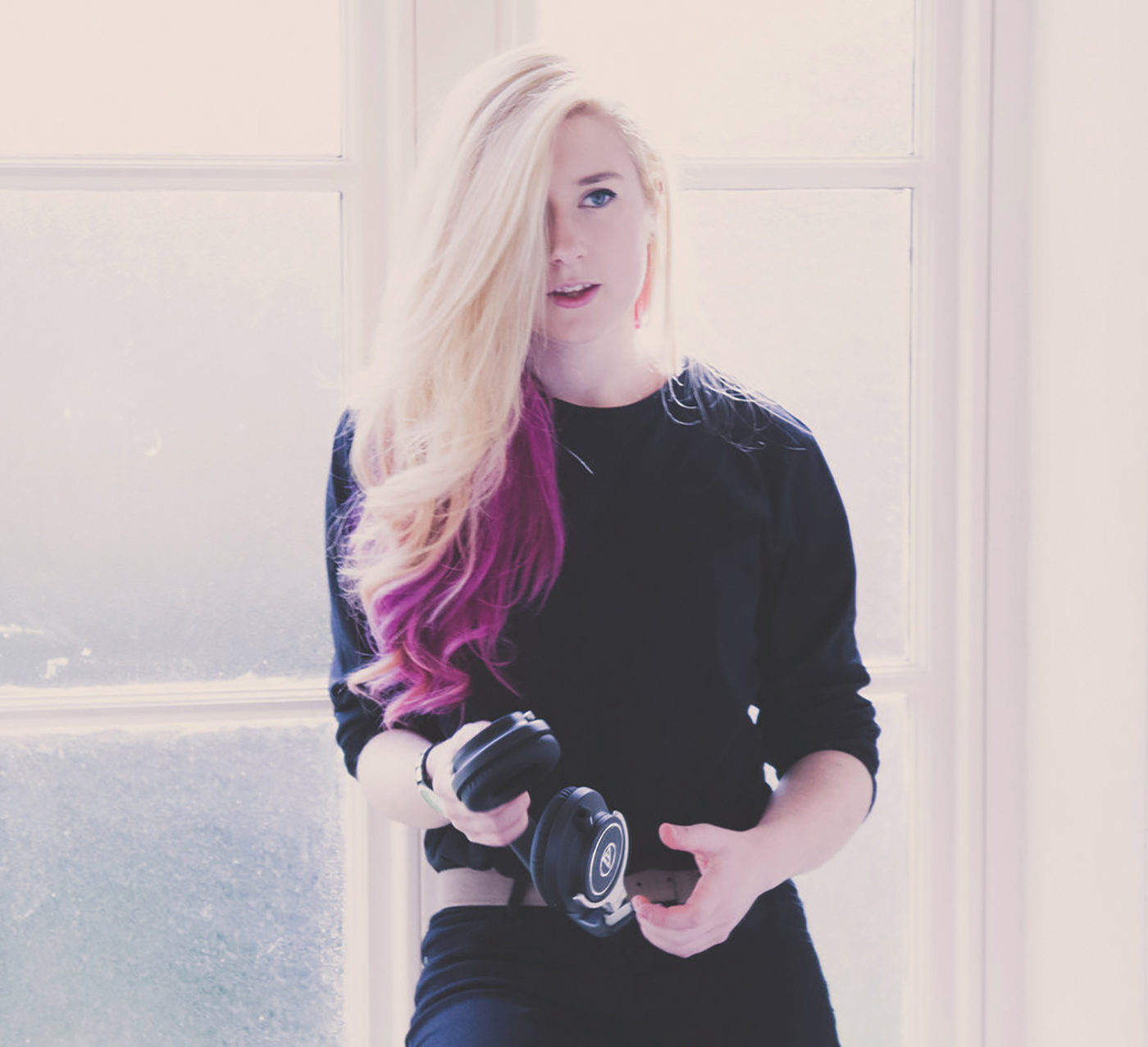
Not your usual holiday
Next year, Lauren will take part in the Pro7ect songwriting retreat in Brighton, where she and a team of producers that include Gethin Pearson, Youth, Roni Size and Talvin Singh will be on hand to work with many aspiring songwriters, creatives and producers, so we ask Lauren how she got involved and what the retreat entails.
“I hadn’t heard of anything like this before so I think it’s the coolest thing,” she enthuses.
“It’s at the Pelirocco Hotel and there are seven producers, as well as a bunch of artists invited to come on this week-long retreat. It’s a course comprising people who are already professional writers. I think there are seven producers and each gets a hotel room that is converted into a studio. Each day, you go down and the artists get given a producer and you go up to the studio and you’re expected to write and record and produce a song by the end of the day. And each day you do that with a different artist.”
Sounds like fun – if you’re an outgoing type that likes meeting new, creative people. Lauren says that despite being nervous, she’s excited about the potential of Pro7ect. “It’s quite scary and there’s quite a lot of pressure,” she admits.
“I generally feel like, as a producer, I definitely like getting to know the person before I start producing their tracks. I think the thing is with this, though, is that if you work with a producer you like on the retreat, then you can book in time to work with them properly in a real studio. Sort of like try-before-you-buy!”
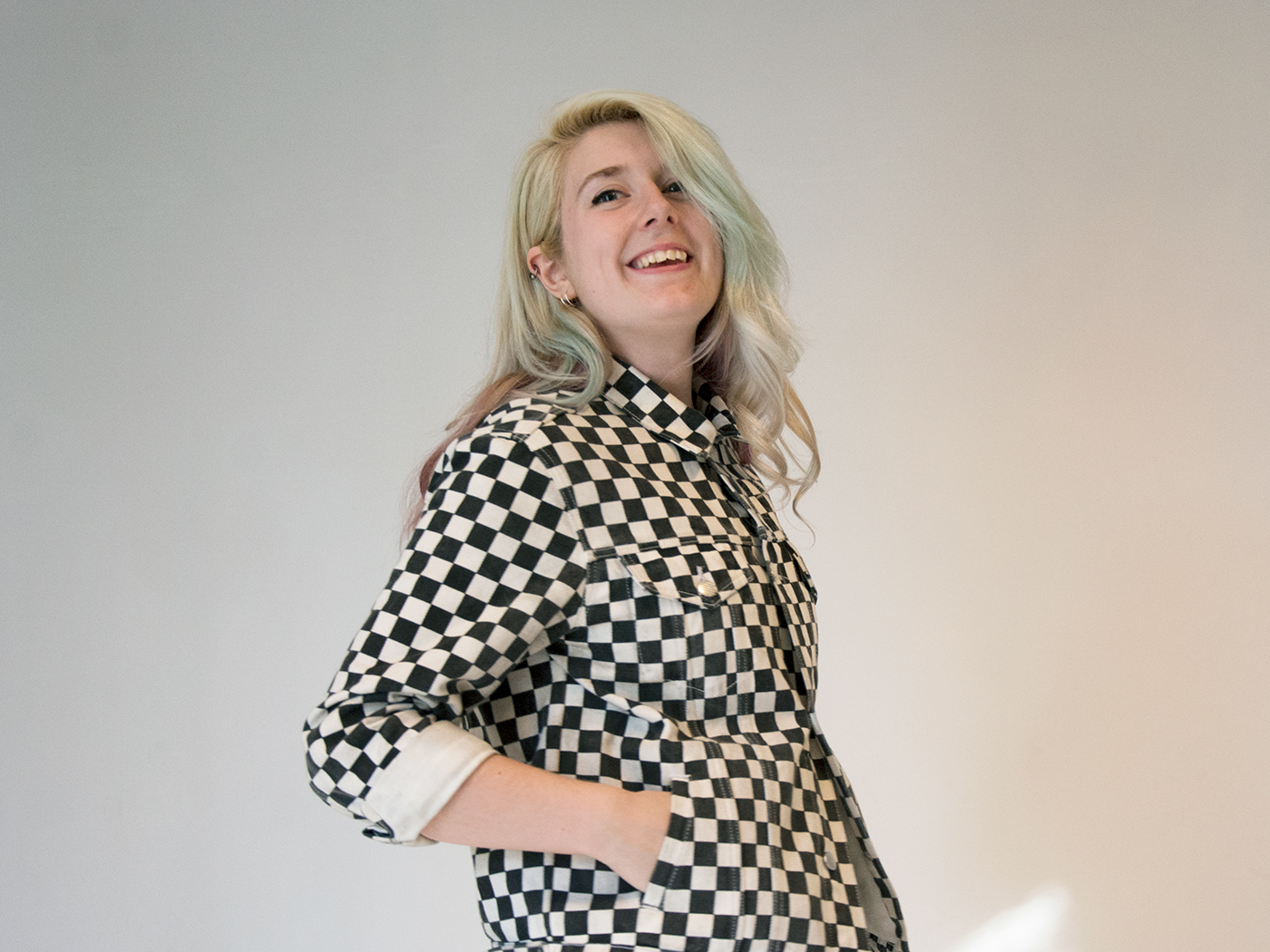
This leads us to asking Lauren whether she feels that being willing to throw herself into new, daunting situations in order to develop her skillset (and contacts list) is something that she’d advise others do too. “Yes, though I think it really depends on how socially extroverted or introverted you are. If you are good at talking to people, my advice would be to go to as many events as possible. Go to the MPG events, go to the Red Bull events and tell people you’re a producer. And if you find another producer, see if you can shadow them or learn from them or if they’ve got any advice themselves. Or just try and get people to record with you.”
Lauren’s advice then, is network, network, network! “I just think that’s literally the pinpoint, really. If you find that difficult then I reckon you still need to go to these events – but you should try and work with people who are good at talking on your behalf – you need to get people on your side who will talk for you.”
So, after all that she’s achieved already, what’s next on the agenda for Lauren? “I’m doing a couple of albums and I’m working on seven other projects, all of them EPs. I like working on a nice EP with a new artist – it’s good. Two of the people I’m working with, they’re both extremely new, but you know when you get the tingle…”
With a résumé as impressive as hers, we expect Lauren Deakin Davies will be on the MusicTech radar for a long time to come.
Check out www.laurendeakindavies.com for more info, and head to www.pro7ect.com for more info on the retreat.